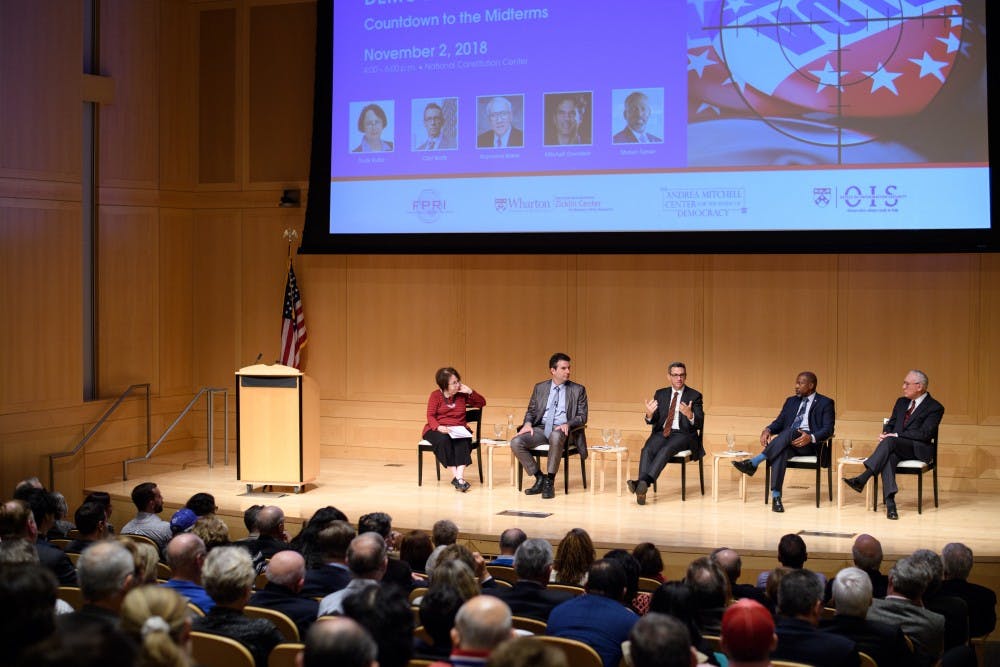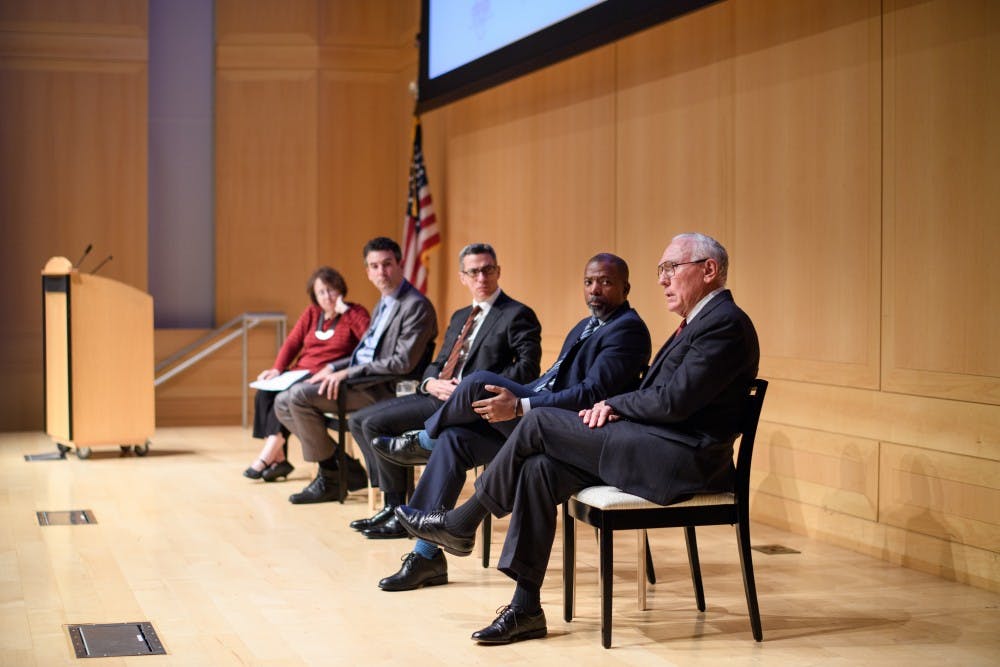
This weekend, just ahead of the midterm elections, Penn Law's Center for Ethics and the Rule of Law held a panel discussion about foreign influence on American elections and how nations can protect themselves from cyber interference.
The Friday event took place in the National Constitution Center. It was the keynote presentation of a two-day conference on cyber interference, dark money, and foreign influence. Panelists focused on how to prevent and react to foreign cyber interference, particularly considering Russia's role during the 2016 United States presidential race.
Most speakers advocated for more preventative measures, including a stronger anti-Putin stance by the executive branch and increased cybersecurity. Several saw the Russian involvement in the 2016 election as part of a broader mission to fund extremist campaigns and further divide the American electorate. Penn Chair of Russian and East European Studies Mitchell Orenstein and other panelists agreed that Russian trolls are attempting to promote the narrative that the U.S. is “on the verge of civil war.”
“[Russia] believed they were going to get something out of this. They may not have gotten everything they want, but one thing they did get was an atmosphere of division in U.S. politics,” Orenstein said.
One question the conference sought to address was how cyber interference by a foreign power may constitute an act of war. Penn Law and philosophy professor Claire Finkelstein said defining these hacks as an attack of cyber warfare depends in part on whether foreign interference compromises a nation’s sovereignty.

While Orenstein and others advocated for economically punitive measures against Russia, Distinguished Research Fellow at the Foreign Policy Research Institute and frequent MSNBC commentator Clint Watts proposed a more proactive response.
“We fight scared,” Watts said. “We’re the strongest and best country in this world but we run around with our tail between our legs. Our adversaries provoke us to see where our lines are and what we will do.”
Watts said 9/11 stemmed from the U.S. inadequately defending itself against international threats. “I mean, I grew up in the Reagan era and it was very definitive. We would put down red lines and we would enforce them. We have gotten away from that over the last twenty, thirty, forty years.”
Finkelstein founded the Center for Ethics and the Rule of Law in 2012 to help address these national security issues ethically while preserving rule of law. She founded the non-partisan organization in response to a “worrisome” expansion of executive authority that facilitated the torture of terrorist detainees in the wake of 9/11. Trump’s significant executive power continues this power shift, she said.
“This is what tends to happen in times of anxiety and peril for the country: we often forget that we must adhere to a system of checks and balances,” Finkelstein said. “National security is really a testing ground for our values; we feel most justified in violating rule of law and ethical norms in the area of national security, because of how much is at stake.”
The Daily Pennsylvanian is an independent, student-run newspaper. Please consider making a donation to support the coverage that shapes the University. Your generosity ensures a future of strong journalism at Penn.
Donate







